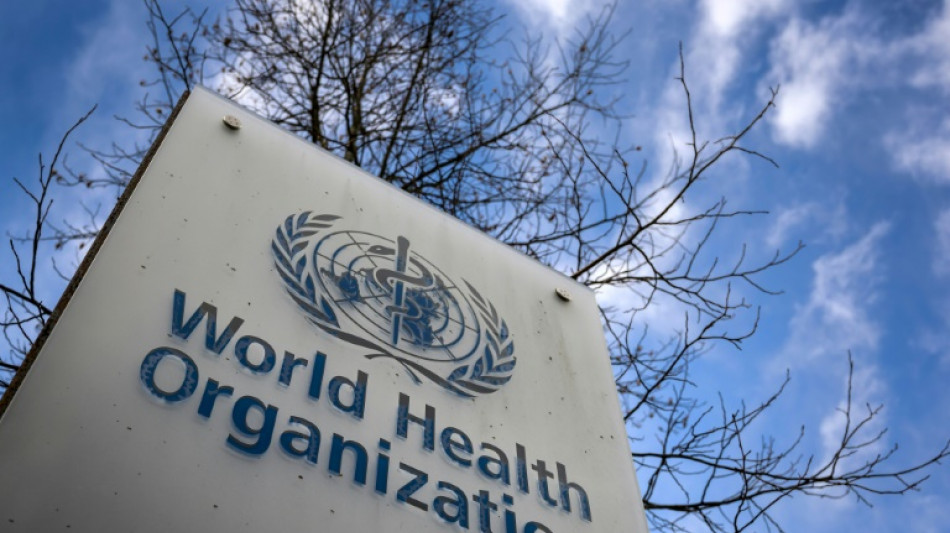
-
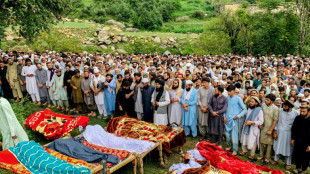 Deadly monsoon rains lash Pakistan, killing dozens
Deadly monsoon rains lash Pakistan, killing dozens
-
Frank urges 'real' Spurs fans to back Tel after racist abuse
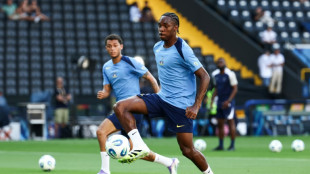
-
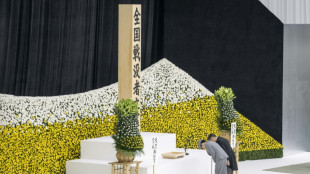 Japan's emperor expresses 'deep remorse' 80 years after WWII
Japan's emperor expresses 'deep remorse' 80 years after WWII
-
Chelsea boss Maresca eager to sign new defender as Colwill cover

-
 Liverpool target Isak controls his Newcastle future: Howe
Liverpool target Isak controls his Newcastle future: Howe
-
New-look Liverpool kick off Premier League season after spending spree

-
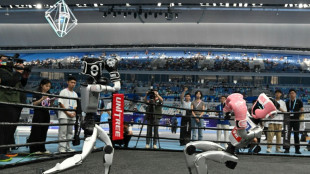 Football and falls as first humanoid robot games launch in China
Football and falls as first humanoid robot games launch in China
-
'Like hell': Indoor heat overwhelms Saudi Arabia's cooks, bakers
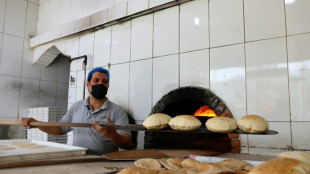
-
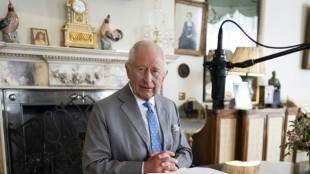 On VJ day, king pays tribute to UK veterans, warns of war's 'true cost'
On VJ day, king pays tribute to UK veterans, warns of war's 'true cost'
-
Stocks mostly higher before US-Russia summit
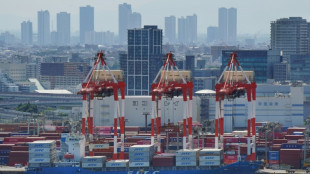
-
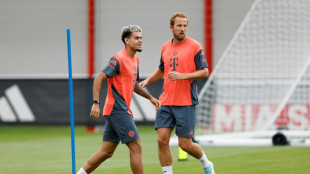 Bayern's Bundesliga crown up for grabs after rocky summer
Bayern's Bundesliga crown up for grabs after rocky summer
-
Arsenal face revamped Man Utd as new-look Liverpool open Premier League season

-
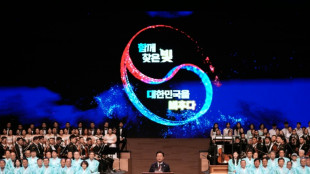 South Korea president vows to build 'military trust' with North
South Korea president vows to build 'military trust' with North
-
'Never again': Indigenous Bolivians sour on socialism
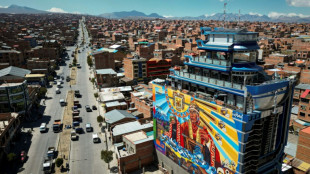
-
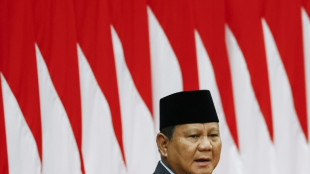 Indonesia's president touts economy, social welfare drive
Indonesia's president touts economy, social welfare drive
-
World plastic pollution treaty talks collapse with no deal
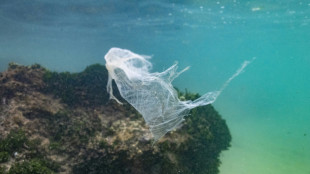
-
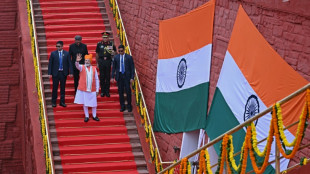 Facing US tariffs, India's Modi vows self-reliance
Facing US tariffs, India's Modi vows self-reliance
-
Trump to meet Putin in high-stakes Alaska summit
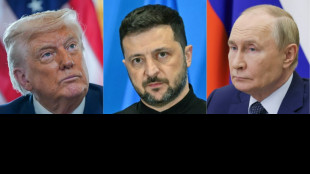
-
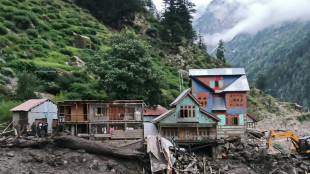 Indian rescuers scour debris after 60 killed in flood
Indian rescuers scour debris after 60 killed in flood
-
Ivory Coast village reburies relatives as rising sea engulfs cemetery
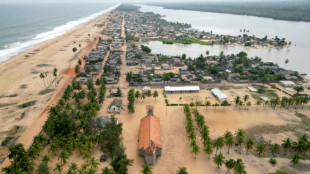
-
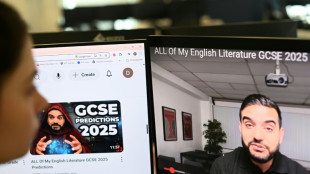 Stressed UK teens seek influencers' help for exams success
Stressed UK teens seek influencers' help for exams success
-
National Guard deploys 800 personnel for DC mission, says Pentagon
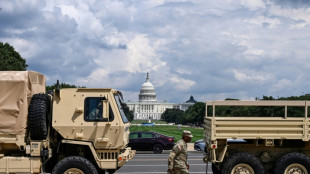
-
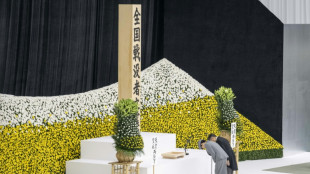 Japan emperor expresses 'deep remorse' 80 years after WWII
Japan emperor expresses 'deep remorse' 80 years after WWII
-
With waters at 32C, Mediterranean tropicalisation shifts into high gear
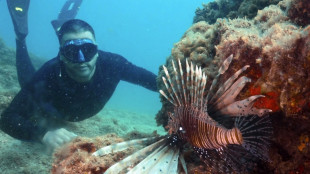
-
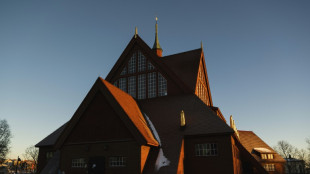 Historic Swedish church being moved as giant mine casts growing shadow
Historic Swedish church being moved as giant mine casts growing shadow
-
Malawi's restless youth challenged to vote in September polls
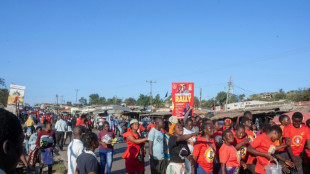
-
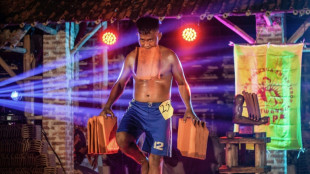 Indonesian roof tilers flex muscles to keep local industry alive
Indonesian roof tilers flex muscles to keep local industry alive
-
World's first humanoid robot games begin in China
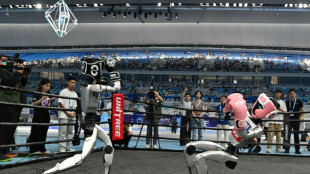
-
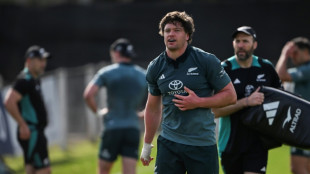 Scott Barrett returns to lead All Blacks against Argentina
Scott Barrett returns to lead All Blacks against Argentina
-
Five things to know about Nigeria's oil sector
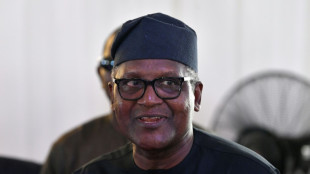
-
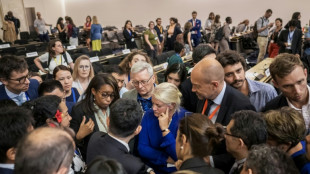 New compromise but still no deal at plastic pollution talks
New compromise but still no deal at plastic pollution talks
-
France's Cernousek seizes lead at LPGA Portland Classic
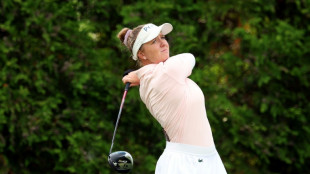
-
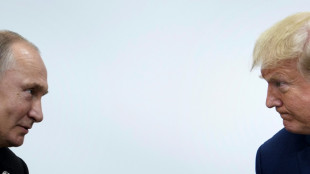 Putin-Trump summit: What each side wants
Putin-Trump summit: What each side wants
-
Desperate Myanmar villagers scavenge for food as hunger bites
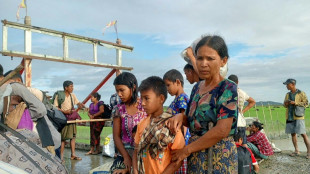
-
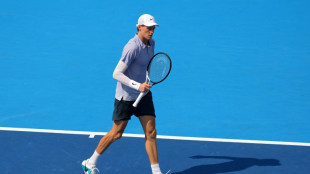 Qualifier Atmane stuns Rune to set up Sinner semi-final in Cincinnati
Qualifier Atmane stuns Rune to set up Sinner semi-final in Cincinnati
-
Hong Kong tycoon Jimmy Lai's security trial delayed over health concerns
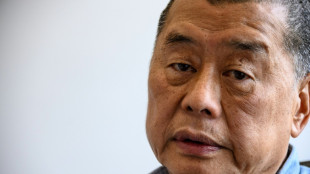
-
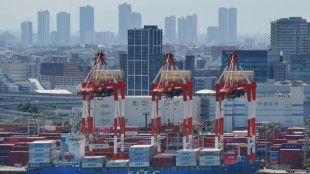 Asia stocks mixed before US-Russia summit
Asia stocks mixed before US-Russia summit
-
Putin hails North Korean troops as 'heroic' in letter to Kim
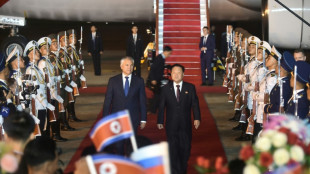
-
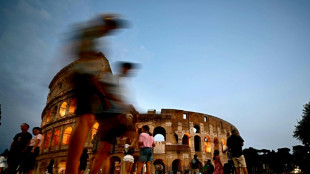 Fleeing the heat, tourists explore Rome at night, underground
Fleeing the heat, tourists explore Rome at night, underground
-
Online cockfighting thrives in Philippines despite ban and murders
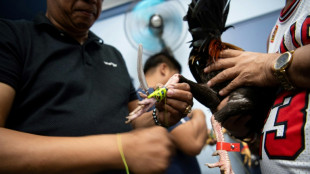
-
 Keeping cool with colours -- Vienna museum paints asphalt to fight heat
Keeping cool with colours -- Vienna museum paints asphalt to fight heat
-
Raising the bar: Nepal's emerging cocktail culture
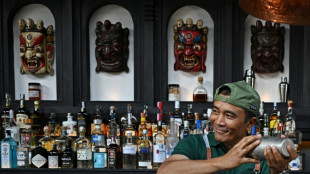
-
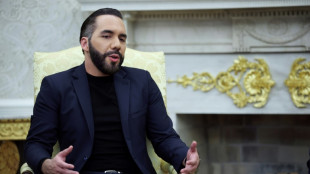 El Salvador plans 600 mass trials for suspected gang members
El Salvador plans 600 mass trials for suspected gang members
-
Trump's tariffs drown Brazil's fish industry
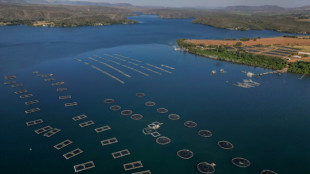
-
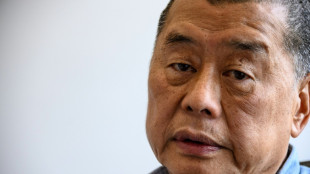 Hong Kong tycoon Jimmy Lai's collusion trial resumes after delay
Hong Kong tycoon Jimmy Lai's collusion trial resumes after delay
-
Britain's Princess Anne turns 75 with typically minimal fuss

-
 Japan posts modest growth despite US tariffs
Japan posts modest growth despite US tariffs
-
Rugby Championship kicks off amid uncertain future

-
 Israeli far-right minister backs contentious West Bank settlement plan
Israeli far-right minister backs contentious West Bank settlement plan
-
Hot putter carries MacIntyre to three-shot lead at BMW Championship


Accord reached 'in principle' over tackling future pandemics: negotiating body
WHO members on Saturday reached agreement over how to tackle future pandemics after three years of discussions, the co-chair of the negotiating body told AFP.
"We have an accord in principle" and the final version will have to be okayed by the various member states, Anne-Claire Amprou, who is also French ambassador for world health, said.
Amprou said delegates would meet on Tuesday in Geneva to put the finishing touches to a landmark text on pandemic prevention, preparedness and response and give it their definitive seal of agreement.
The text will then require the final seal of approval from all World Health Organization members at the World Health Assembly in Geneva at the end of May.
The approval came after a marathon discussion session stretching for almost 24 hours after which delegates broke into enthusiastic applause lasting several minutes.
"This is a very good signal. You are part of an incredible history in the making," said WHO director-general, Tedros Adhanom Ghebreyesus.
"This is a good gift to our children and our grandchildren," said Tedros, who remained ensconced with delegates throughout the night as they thrashed out an agreement.
Several sources told AFP one of the main sticking points as delegates inched their way towards an accord was paragraph 11 of a text extending to some 30 pages on defining technology transfer for production of health products related to pandemics, particularly to benefit developing countries.
Latin American countries are also pushing for facilitation of the transfer.
The issue had been a bone of contention in poorer countries during the Covid-19 pandemic as they saw rich nations hoard vaccine doses and other tests.
Several countries where the pharmaceutical industry is a major economic player oppose the idea of mandatory transfers and have insisted on it being voluntary.
- 'Very constructive and positive' -
According to one delegate, this point has been resolved. But the latest version of the text was as of Saturday morning not available.
For Amprou, "we had to negotiate this week with all the member states in a very constructive and positive manner. There is a real desire to reach an agreement that truly makes a difference and helps prevent, prepare for, and respond to pandemics."
Only experience will tell if the text as proposed can come through the acid test of another pandemic which Tedros has been at regular pains to insist will emerge at some point, we know not when.
The text comes with the traditional multilateral approach for responding to global crises in crisis after US President Donald Trump slashed the international aid programme of what had been by far the world's biggest donor nation.
The United States were absent from the negotiations, after Trump said on his return to the White House that his country will leave the WHO, a move experts say will heighten risks to the global health risk surveillance system.
It was in December 2021, two years after the start of Covid, which killed millions across the globe and brought the world economy to its knees, that WHO members decided a text was of paramount importance.
- 'Lot of upside' -
However, Saturday's text lacks lustre compared with the scale of WHO member states' initial ambitions, James Packard Love, executive director of the Knowledge Ecology international NGO, which has been keenly following the talks, told AFP.
For Love "the initial proposals were put forward by the Secretary were quite ambitious (but) that's not the case now.
"As the negotiations have dragged on, the trade people have come in, the industry, people have come in. And some people ask me, is the agreement so weak now that it's not worth doing? Will it actually change anything that goes through?
"And I tell people that I think there's a lot of upside for getting an agreement."
Michelle Childs, head of policy advocacy at the Drugs for Neglected Diseases Initiative (DNDi), an NGO, told AFP Friday. "The pandemic agreement will not be perfect; it is a product of compromise, and not all ambitions will be met.
"But it will create a crucial new baseline to build on to save lives during the next global health emergency. It is a floor, not a ceiling."
Warning signs of health risks remain, notably H5N1 bird flu, a virus which continues to infect new species, raising fears of eventual transmission between humans.
Another fear is measles outbreaks in 58 countries resulting from insufficient vaccination rates due to mistrust of vaccines caused by misinformation, as well as mpox which is wreaking havoc in Africa.
J.Saleh--SF-PST
